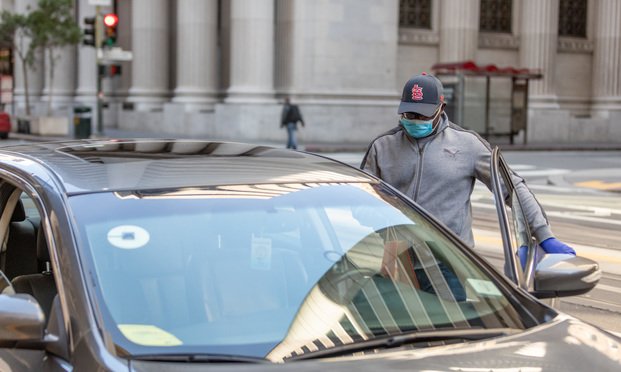 Uber driver Edward Nkansnh has suffered substantially fewer riders, instead, replacing it with Uber Eats food delivery. (Photo: Jason Doiy/ALM)
Uber driver Edward Nkansnh has suffered substantially fewer riders, instead, replacing it with Uber Eats food delivery. (Photo: Jason Doiy/ALM)
A California state court judge responded to the injunctive relief requested by a class of Uber drivers who claim they fear retaliation from the company over an upcoming ballot initiative, calling it "particularly repugnant to free speech rights."
Recommended For You
Want to continue reading?
Become a Free PropertyCasualty360 Digital Reader
Your access to unlimited PropertyCasualty360 content isn’t changing.
Once you are an ALM digital member, you’ll receive:
- Breaking insurance news and analysis, on-site and via our newsletters and custom alerts
- Weekly Insurance Speak podcast featuring exclusive interviews with industry leaders
- Educational webcasts, white papers, and ebooks from industry thought leaders
- Critical converage of the employee benefits and financial advisory markets on our other ALM sites, BenefitsPRO and ThinkAdvisor
Already have an account? Sign In Now
© Touchpoint Markets, All Rights Reserved. Request academic re-use from www.copyright.com. All other uses, submit a request to [email protected]. For more inforrmation visit Asset & Logo Licensing.







